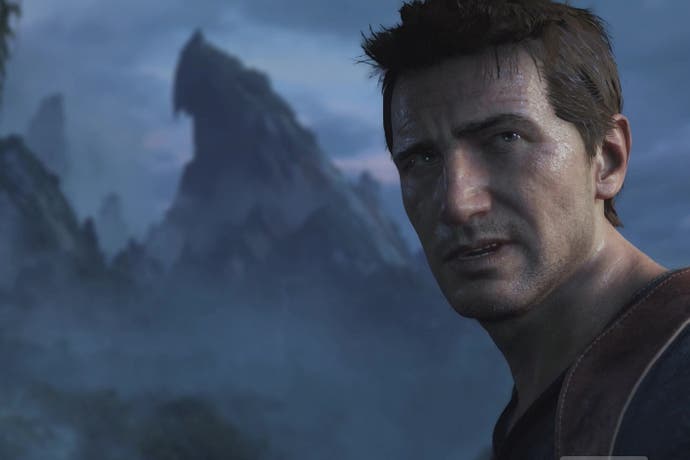How video game heroes struggle with their identities
The hero's journey.
Mario is a simple guy. He wears overalls and a spiffy cap. He's got a brother and a couple of close friends. He can run fast and jump high. In his various quests to save princess Peach, he makes use of all of these attributes and relationships, yet none of them tell us anything about who Mario really is.
As Super Mario Odyssey has shown us, if you take away the overall, what remains is still Mario, a guy with a fluffy moustache and a pair of delightful nips. What he wears does not define him. Yet most of Mario's essential properties, the things that make him who he is, are actually purely cosmetic - we would feel weird if Mario shaved off his moustache and spoke to us in a baritone, but we don't care about the exact nature of his relationship with his brother or if he ever wonders what his life has come to when he has to rescue Peach for the umpteenth time.
With increasing frequency however, games explore the inner turmoil of their protagonists and how their experiences change them. Video game heroes need a reason for doing what they do, and often this leads to them questioning their values and beliefs as well as their relationships with others.
Night in the Woods is all about its protagonist. Throughout the game, we uncover Mae's identity - the relationship she has with herself and the different roles she fulfils. This examination is triggered by several events, most prominently her dropping out from university.
Mae's identity is linked to other people in several ways. Mae has a good relationship with her parents, for example, she can engage with them on multiple occasions: she can talk to her mum in the morning or visit her at work, and watch TV with her dad in the evening. Her unwillingness to talk about the reason she left university shows she's afraid that her failure as a student means failure as a daughter, too, after all Mae was the first in her family to go to university and as a result her parents are undergoing significant financial strain.
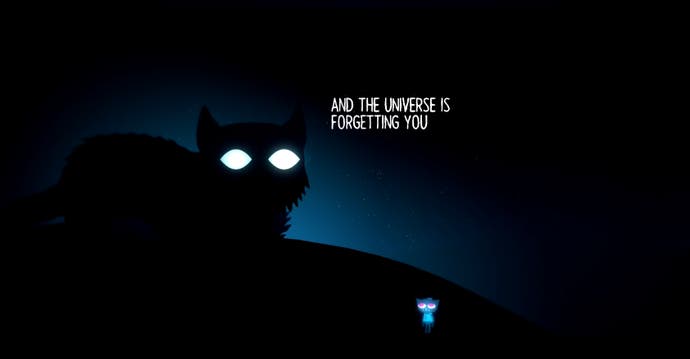
We learn a lot about Mae through talking to other people. Everyone seems to have a story about her, and most of them take place during high school - a seemingly simpler time. In order for Mae to identify with Possum Springs and its inhabitants, she hopes to find the town exactly as she left it. Having failed to adapt, or to "grow up" during her time away, her identity hinges on her past and the person she was before her assault of a fellow pupil changed both the public perception of her as well as the way she thinks about herself.
Throughout the game however, Mae turns out to be somewhat of an unreliable narrator. Her friends remember some incidents differently or let her know their true feelings on her devil-may-care attitude. In reality, Mae cares very much about her image and other people's opinions of her. A large part of her identity is constructed from what others think of her. When it becomes clear she can't continue the way she has before, Mae finds herself at a loss.
According to the philosopher Jean-Paul Sartre, this happens to all of us at some point. He proposed we are "too free", overwhelmed by choice and different ways to live our lives, which leads constant re-evaluation.
Existentialists like Sartre believe there is ultimately no meaning to life - there is no higher power holding us accountable, no jurisdiction that couldn't fail us, no destiny we need to fulfil. Mae struggles with existential questions: she dreams of a god that tells her they don't care about her and has difficulty going the way society prescribes, leading from school to work to a family and hopefully some kind of legacy.
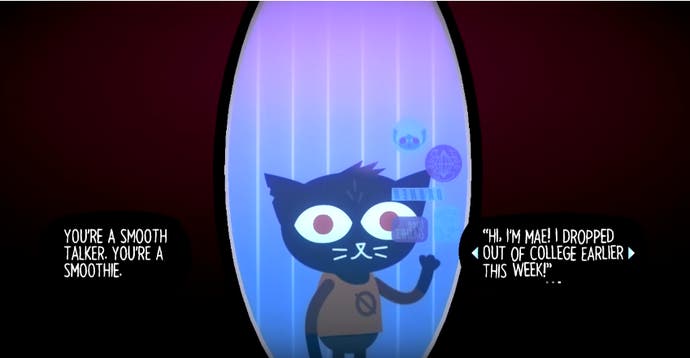
Instead, at twenty Mae is the embodiment of a quarter-life crisis as she learns that she has to accept all of herself and let go of some people and stories she thought of as integral to who she is so that she can lead a happy life.
Uncharted's Nathan Drake is also trying to build a new identity for himself. While Mae in many ways still tries to articulate who she is, Nathan is seemingly a step ahead of her: he needs to combine new and old aspects of himself as his life continues to change.
Nathan needs to examine what his essential and accidental properties are - the things that undeniably make him who he is and those he can let go of and still remain himself. After marrying Elena and accepting a job as diver for a salvage company prior to Uncharted 4, he is trying his hand at a normal life for the first time - one that doesn't involve treasure hunting, shoot outs and infiltration of private property.
Nate's personality, by definition the way people choose to express their identity, is strongly linked to his lifestyle: he comes across as someone carefree , someone who often relies on improvisation and luck, and someone who trusts in his skills when everything else fails him.
As someone who has a whole room in his house dedicated to exhibits of past adventures, beckoning him to keep living in his past, Nathan believes his role as an adventurer to be essential to his identity. After all, Nate and his brother Samuel grew up with stories of their famous ancestor, the explorer Sir Francis Drake. During their time as orphans and beyond, the Drake brothers held onto their family history as perhaps their sole source of familial pride, to the point they end up adopting his surname. His link to adventure continues in many ways, notably through working with Sam, who he has always looked up to and who leads him to eventually become a professional treasure hunter, and through his relationship with Sully.
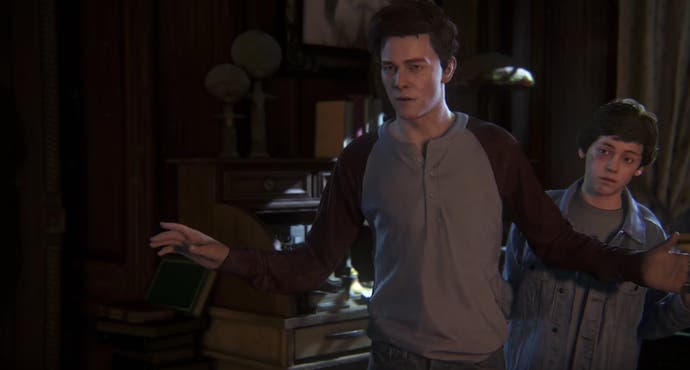
Thus when Elena, who Nate got to know during an expedition, asks him to give up all the life of a treasure hunter, Nate feels asked to deny his very identity. Instead of making his role as husband a new part of himself, Nathan begins to shut Elena off.
According to several schools of philosophy, this is a normal reaction to facing changes to your identity. While Mae in Night of the Woods theoretically knows how she is supposed to behave since she gets input from basically everyone, including her friends and family, Nathan's situation as a husband is completely alien to him.
Empiric philosophers propose that true knowledge comes only from experience - Nate may have a vague idea of what a husband is supposed to act like, which is further complicated due to his troubled home life as a child, but he needs more first-hand experience.
Contemporary philosopher Derek Parfit also suggested that we never quite build ourselves from the ground up: while we may reject some earlier parts of our identity as non-essential over time, certain things just make us who we are and thus continue to be relevant.
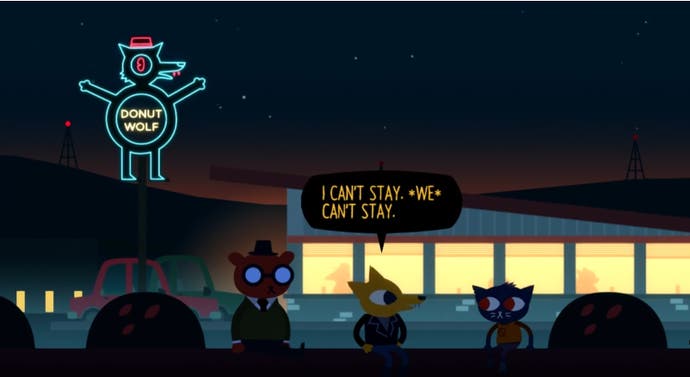
For Nathan Drake, the life of a treasure hunter turns out to be a part of him, while the events of Uncharted 4 make him realise there is no need for him to emulate his brother.
Video game narratives like these embrace our need to quite literally identify with the characters we control. Everyone struggles with different aspects of their lives while trying to develop and retain a good sense of who we are and what is important to us.
Especially in franchises that allow us to experience the same world or people over time acknowledging identity makes characters feel real and suggests they undergo a growth process just as we do.
Most importantly maybe, in a medium that is often solely about winning, looking closer at the internal struggles of video game characters helps us understand that negative experiences and emotions are normal parts of life that can occur even to the smartest and most skilled of us.
